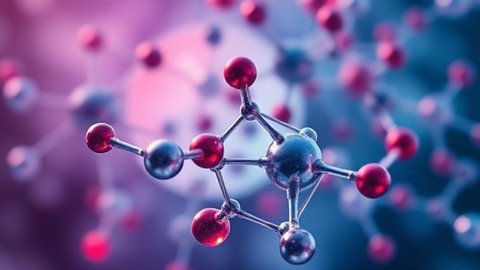Please, rate the engine Author: warezcrackfull on 15-11-2024, 00:52, Views: 0
Respected Sites
Survey
Ads
Warezcrackfull.com » Tutorial » Computational Chemistry Concepts, Theories And Applications
Computational Chemistry Concepts, Theories And Applications

Free Download Computational Chemistry Concepts, Theories And Applications
Published 10/2024
MP4 | Video: h264, 1920x1080 | Audio: AAC, 44.1 KHz
Language: English | Size: 3.35 GB | Duration: 13h 18m
Ab initio methods, Density Functional Theory methods
What you'll learn
Understanding the undelying theories of various computational methods such as ab initio, density functioanl theory, semi-empirical and molecular mechanics
Understanding the difference between wave function and density based methods in computational chemistry and their pros and cons
Understanding the cost and accuracy of various methods and basis sets
Learn to apply effective and time saving approaches to solve chemical problem with high accuracy and minimum cost (time)
Gain knowledge of different resources/databases useful for theoretical chemist
Requirements
Some knowledge of mathematics is needed as the course contains several equations
Description
Computational Chemistry involves application of numerical methods for solving the problems related to chemical systems. Mastering in computational chemistry involves not only hands on practice of Computational software, but also requires understanding the underlying theory, computational methods and approaches to solve chemical problems. In this course, students will learn the theoretical framework of computational chemistry methods necessary for understanding of methods. Practical understanding of the strengths, weaknesses, and ranges of applicability of different methods is also presented in this course. This knowledge will allow for the critical evaluation of the validity and accuracy of results and of the conclusions derived from the computational chemistry modelling of chemical problems. Finally, description of a few properties is also given which will give students an idea like how the properties are calculated through computational tools.The following topics will be discussed in this course:· Potential Energy Surface· Minima and Saddle Points· Thermodynamics and Normal Mode Analysis· Schrodinger Wave Equation· Molecular Hamiltonian and Born-Oppenheimer Approximation· Hartree-Fock Method· Post Hartree-Fock Methods· Static and Dynamic Correlation· Density Functional Theory· Basis Functions and Basis Sets· Excited States· Restricted and Open Shell Systems· Cost and Accuracy· Strategies to Reduce Cost of Computational methods· Molecular Mechanics· Semi-Empirical Methods· Properties Calculations
Overview
Section 1: Introduction
Lecture 1 Introduction of the course, computational chemistry methods
Section 2: Potential energy surface (PES)
Lecture 2 PES of N2 molecule and ozone
Lecture 3 Hypersurface
Section 3: Minima and Saddle points
Lecture 4 Newton Raphson Method
Lecture 5 Finding and characterizing stationary points
Section 4: Nomal mode anlysis, thermal correction to energies
Lecture 6 Normal mode analysis
Lecture 7 Partition functions
Lecture 8 different partition functions in energy and entropy
Section 5: Schordinger Equation and postulates of quantum mechanics
Lecture 9 Postulates of quantum Mechanics
Section 6: Molecular Hamiltonian and Born-Oppenheimer Approximation
Lecture 10 Molecular Hamiltonian and Born-Oppenheimer Approximation
Lecture 11 Many body problem and Variational approach
Section 7: Hartree Fock Method
Lecture 12 Contruction and optimization of trial wavefunction, Overlap and Resonance Integ
Lecture 13 Hartree Product, constraints of trial wavefunction
Lecture 14 Slater determinent wavefunction and Hartree Fock calculations
Lecture 15 Hartree Fock Energy
Lecture 16 SCF Procedure and Hartree Fock equation
Section 8: Static and Dynamic correlation, and Post Hartree Fock Methods
Lecture 17 Dynamic correlation and multideterminent wavefunction
Lecture 18 Perturbation Theory part 1
Lecture 19 Perturbation theory Part II, advantages and disadvantages
Lecture 20 Coupled Cluster post HF methods
Lecture 21 Static Correlation and Methods to capture Static Correlation
Section 9: Density Functional Theory
Lecture 22 DFT basic and the fundamental theorems such as Hohenberg-Kohn, Thomas Fermi
Lecture 23 Kohn Shame Theorem of DFT
Lecture 24 Exchange Correlation Functionals
Lecture 25 Classes of DFT methods and their functionals
Section 10: Basis set and Basis function
Lecture 26 Basis function
Lecture 27 Basis set
Lecture 28 Types of basis set and polarization function
Lecture 29 Diffuse functions, and the choice of basis sets
Lecture 30 plane wave basis sets
Section 11: Cost and Accuracy
Lecture 31 Cost and accuracy of methods
Lecture 32 Errors in geometries and energies of different methods
Lecture 33 Strategies to reduce computational cost
Lecture 34 solvation models and their associated costs
Lecture 35 Multilayer method
Section 12: Excited states
Lecture 36 Configuration Interaction singles
Lecture 37 Time dependent DFT
Section 13: Force Field methods
Lecture 38 Force Fields overview
Lecture 39 Bond stretching terms in force fields
Lecture 40 Bending, Torsion and non-bonding terms.
Lecture 41 steps in Force fields
Section 14: Semi-empirical methods
Lecture 42 Semi-empirical methods Huckel Theory
Lecture 43 Complete Neglet of Differential Overlap (CNDO)
Lecture 44 Intermediate Neglect of Differential Overlap and NNDO
Section 15: Properties Calculations
Lecture 45 Properties and Natural Bonding Orbitals
Lecture 46 Multipole moments and Molecular Electrostatic Potential
Lecture 47 IR and Raman spectra
Lecture 48 UV-Vis and NMR spectra
All those scientists who intend to learn/apply quantum mechanis or molecular mechanics based methods to their research
Screenshot
Homepagehttps://www.udemy.com/course/computational-chemistry-concepts-theories-and-applications/
Buy Premium From My Links To Get Resumable Support,Max Speed & Support Me
Rapidgator
awijo.Computational.Chemistry.Concepts.Theories.And.Applications.part2.rar.html
awijo.Computational.Chemistry.Concepts.Theories.And.Applications.part3.rar.html
awijo.Computational.Chemistry.Concepts.Theories.And.Applications.part4.rar.html
awijo.Computational.Chemistry.Concepts.Theories.And.Applications.part1.rar.html
Fikper
awijo.Computational.Chemistry.Concepts.Theories.And.Applications.part1.rar.html
awijo.Computational.Chemistry.Concepts.Theories.And.Applications.part2.rar.html
awijo.Computational.Chemistry.Concepts.Theories.And.Applications.part3.rar.html
awijo.Computational.Chemistry.Concepts.Theories.And.Applications.part4.rar.htmlNo Password - Links are Interchangeable
Comments
Archived warez downloads
February 2025 (1772)
January 2025 (2316)
December 2024 (3717)
November 2024 (6839)
October 2024 (2594)
September 2024 (5333)
Friends
All rights by WarezCrackFull.com 2024 Sitemap
